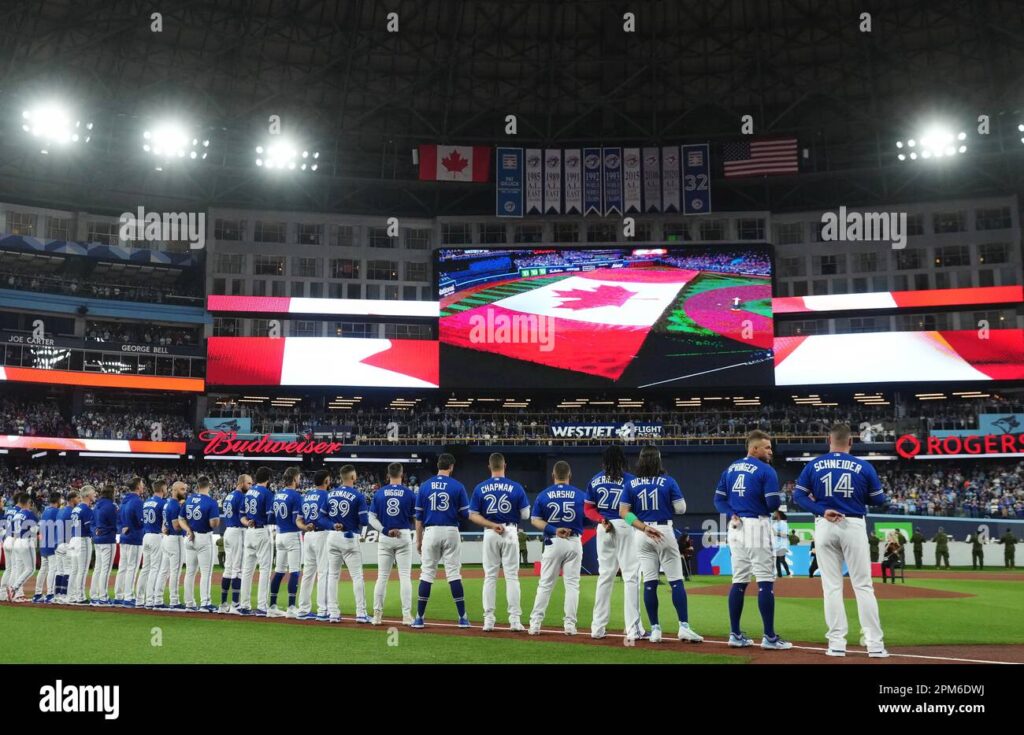It’s nearly impossible to separate sports from the broader societal and political currents swirling around them. Why do stadiums become battlegrounds for political opinions? Can you blame fans for reacting?
The Toronto Blue Jays’ home opener in March 2025 is a prime example of how the sports world often intersects with political tensions. As the Rogers Centre crowd awaited the game against the Baltimore Orioles, the U.S. national anthem, “The Star-Spangled Banner,” was met with scattered boos. Moments later, cheers erupted as the Canadian anthem, “O Canada,” played with a grand flag display, transforming the atmosphere into one of patriotic unity. But let’s dig deeper—what’s really going on here?
Such reactions don’t occur in a vacuum. The context here involves ongoing political strains between Canada and the U.S., driven partly by trade disputes and provocative rhetoric from former U.S. President Donald Trump. The suggestion that Canada should become America’s 51st state struck a nerve, intensifying an already simmering tension. Fans expressing their frustration through boos might seem uncalled for to some, but can you blame them? It’s not every day that your national identity feels under siege.
This isn’t an isolated incident either. From hockey arenas to baseball stadiums, booing the U.S. anthem has become a form of symbolic protest against perceived American overreach. Sports, often seen as a refuge from political turmoil, paradoxically offer a stage for these expressions. Why? Because sports fans are deeply emotional, and their loyalty to teams often reflects their cultural or national identity. When that identity feels threatened, the stadium becomes the arena for collective catharsis.
Blue Jays manager John Schneider and Orioles skipper Brandon Hyde seemed prepared for the boos, acknowledging the likelihood without dwelling on it. Both managers emphasized the need to focus on the game, but their comments reveal an awareness that sports are rarely just about games. They’re about pride, community, and, sometimes, the clash of ideals.
Even the symbolic gestures at this game spoke volumes. The pre-anthem moment of silence for Hall of Famer Rickey Henderson underscored the unifying power of shared history. Meanwhile, the public address announcement urging spectators to respect the anthems hinted at the organizers’ hope to keep the event free from political disruptions. But as history shows, separating sports and politics is easier said than done.
Think about it: sports fans invest more than their money—they invest their emotions and identities. For Canadian fans who feel slighted by political rhetoric, the booing becomes an outlet. It’s not about disrespecting the U.S. anthem per se; it’s about pushing back against a larger narrative. Can you blame them for wanting to be heard?
At the heart of sports culture lies a deep connection to identity, and political tensions often amplify this. Anthem reactions, whether cheers or jeers, reveal more than just opinions—they reflect societal currents and personal stakes. So, the next time fans react politically at a game, ask yourself: can you blame them for wearing their hearts on their sleeves?
References:
Fans boo U.S. anthem before Blue Jays home opener at Toronto’s Rogers Centre

